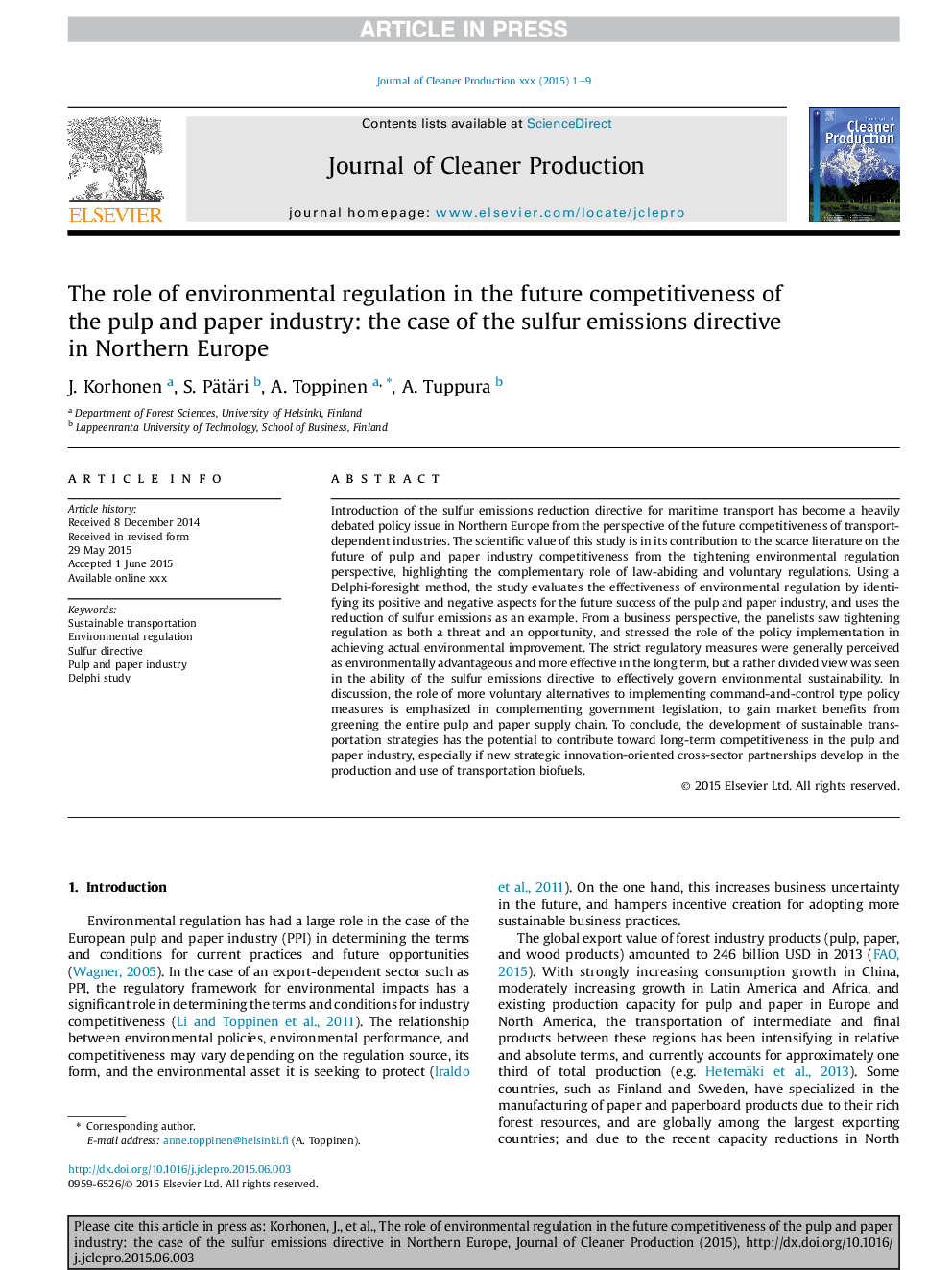| Article ID | Journal | Published Year | Pages | File Type |
|---|---|---|---|---|
| 10688215 | Journal of Cleaner Production | 2015 | 9 Pages |
Abstract
Introduction of the sulfur emissions reduction directive for maritime transport has become a heavily debated policy issue in Northern Europe from the perspective of the future competitiveness of transport-dependent industries. The scientific value of this study is in its contribution to the scarce literature on the future of pulp and paper industry competitiveness from the tightening environmental regulation perspective, highlighting the complementary role of law-abiding and voluntary regulations. Using a Delphi-foresight method, the study evaluates the effectiveness of environmental regulation by identifying its positive and negative aspects for the future success of the pulp and paper industry, and uses the reduction of sulfur emissions as an example. From a business perspective, the panelists saw tightening regulation as both a threat and an opportunity, and stressed the role of the policy implementation in achieving actual environmental improvement. The strict regulatory measures were generally perceived as environmentally advantageous and more effective in the long term, but a rather divided view was seen in the ability of the sulfur emissions directive to effectively govern environmental sustainability. In discussion, the role of more voluntary alternatives to implementing command-and-control type policy measures is emphasized in complementing government legislation, to gain market benefits from greening the entire pulp and paper supply chain. To conclude, the development of sustainable transportation strategies has the potential to contribute toward long-term competitiveness in the pulp and paper industry, especially if new strategic innovation-oriented cross-sector partnerships develop in the production and use of transportation biofuels.
Related Topics
Physical Sciences and Engineering
Energy
Renewable Energy, Sustainability and the Environment
Authors
J. Korhonen, S. Pätäri, A. Toppinen, A. Tuppura,
